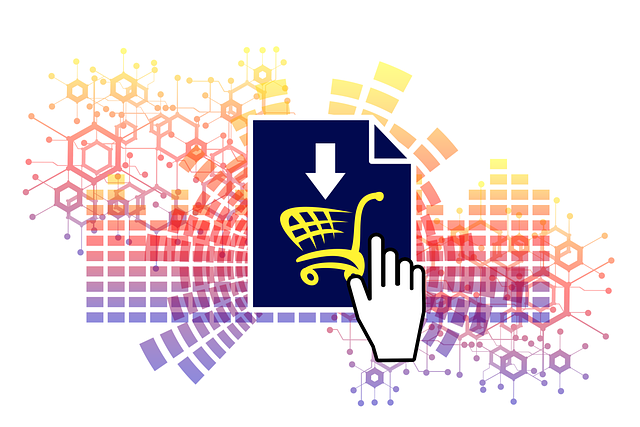
Environmental activists and scientists are at heightened risk from cyber espionage and targeted surveillance due to their work on ecological issues. These risks come from various entities with vested interests in maintaining the status quo, including corporations, state-sponsored actors, and criminal organizations. The article emphasizes the need for advanced security measures, highlighting Confidential Computing for Human Rights Activists (CCHRA) as a critical safeguard against data breaches and infrastructure sabotage. CCHRA ensures secure and confidential processing of sensitive information, protecting the integrity and privacy of communications and intellectual property. This technology is essential for maintaining trust within environmental communities by facilitating the secure exchange of critical data and strategic planning without fear of compromise or exposure. In a digital age with increased surveillance, additional security measures such as anonymizing browsers (Tor/VPN) are crucial alongside confidential computing to protect personal information and advocacy subjects. Regular software updates, strong password practices, and phishing awareness complement these measures, underlining the necessity of comprehensive security protocols for human rights activists, particularly in the environmental sector.
In an era where digital footprints can be as revealing as overt surveillance, environmental activists and scientists face significant online threats. This article delves into the critical need for robust online privacy tools, particularly anonymizing browsers, to safeguard sensitive data amidst escalating cyber risks. We explore the threat landscape these individuals encounter, highlighting how confidential computing emerges as a pivotal defense mechanism within the realm of human rights activism. Subsequently, we dissect practical strategies for implementing anonymous browsing, ensuring that the vital work of environmental stewardship and research can be conducted securely and without compromising personal information. This comprehensive guide offers essential insights into navigating the digital world with enhanced privacy protections.
- Understanding the Threat Landscape for Environmental Activists and Scientists Online
- The Role of Confidential Computing in Protecting Sensitive Data
- Implementing Anonymizing Browsers for Secure Web Navigation
- Best Practices for Environmental Activists and Scientists to Maintain Digital Privacy
Understanding the Threat Landscape for Environmental Activists and Scientists Online

Environmental activists and scientists often operate at the forefront of identifying and addressing pressing ecological issues, a mission that increasingly leads them into digital territory where their activities are subject to scrutiny and sometimes threats. The online environment is rife with risks, from cyber espionage and data breaches to targeted surveillance by actors with vested interests in maintaining the status quo. These actors may include corporations, state-sponsored entities, or even criminal organizations. The threat landscape is diverse, encompassing everything from the theft of sensitive research data to the sabotage of digital infrastructure that supports environmental projects.
In this context, confidential computing emerges as a critical tool for safeguarding the integrity and privacy of environmental activists’ and scientists’ online endeavors. Confidential Computing for Human Rights Activists (CCHRA) frameworks are particularly relevant, as they ensure that data processing is done in a trusted environment where both the compute and the data remain confidential. By leveraging these advanced technologies, activists and researchers can secure their communications, protect their intellectual property, and maintain the confidentiality of their sources and methodologies. This level of protection is paramount in maintaining the trust between environmental groups and the communities they serve, allowing for the safe exchange of critical information and the development of strategies that can lead to positive environmental outcomes without the threat of compromise or exposure.
The Role of Confidential Computing in Protecting Sensitive Data

In an era where environmental activism and scientific research often attract the attention of malicious actors, the protection of sensitive data is paramount. Confidential computing emerges as a robust solution to safeguard this information from unauthorized access or breaches. This advanced security model ensures that data remains confidential both in use and at rest, meaning that it is encrypted not only when stored but also when processed by the computer’s applications or services. For human rights activists and scientists whose work may involve collecting and analyzing data that could be sensitive or incriminating, especially in regions with oppressive regimes, confidential computing offers a layer of security that transcends traditional encryption methods. It enforces strong access controls so that only authorized users can interact with the data, effectively mitigating the risk of data leaks or misuse. This technology is integral to maintaining the integrity and privacy of environmental activists’ strategies and scientists’ research findings, allowing them to operate without fear of retribution or exploitation of their work for nefarious purposes. By adopting confidential computing, these individuals and organizations can trust that their data is shielded from potential threats, enabling them to focus on their critical mission of protecting the environment and advancing scientific understanding.
Implementing Anonymizing Browsers for Secure Web Navigation

In an era where digital surveillance is increasingly pervasive, environmental activists and scientists must navigate the web with a heightened sense of caution to protect their identities and research data. Implementing an anonymizing browser becomes a critical component in their digital toolkit. These browsers, often equipped with features like Tor or VPNs, reroute internet traffic through multiple servers, obscuring the user’s IP address and location, thereby shielding their true identity from potential threats. This layer of security is paramount when accessing sensitive information or sharing findings that could be targeted by state-sponsored actors or other malicious entities intent on silencing dissenting voices or compromising data integrity.
Confidential computing offers a robust solution within this realm, enabling the encryption of data both in transit and at rest. This technology ensures that only authorized parties can access the data, providing an additional layer of security for human rights activists, including those in the environmental sector. By integrating confidential computing with anonymizing browsers, these users can engage in secure web navigation, conduct encrypted communications, and safely store data on the cloud without fear of interception or unauthorized access. This comprehensive approach to digital privacy is essential for safeguarding the work and lives of those who rely on the internet to expose environmental threats, advocate for policy changes, and share critical scientific findings with the world.
Best Practices for Environmental Activists and Scientists to Maintain Digital Privacy

Environmental activists and scientists often handle sensitive data that, if exposed, could lead to significant personal and environmental risks. Maintaining digital privacy is paramount in such endeavors. One of the best practices for these individuals is to utilize encryption technologies, particularly confidential computing solutions tailored for human rights activists. These solutions ensure that data is encrypted not only in transit but also while it is being processed, stored, and even when it’s being analyzed by machine learning algorithms. This end-to-end encryption provides a shield against cyber threats and state-sponsored surveillance, safeguarding the privacy of both the activists and the subjects they are protecting.
In addition to leveraging confidential computing, it is crucial for environmental activists and scientists to adopt secure browsing practices. This includes using anonymizing browsers that prevent tracking and fingerprinting by advertisers or malicious actors. Such tools mask the user’s IP address and browser footprint, making it difficult to trace their online activities. Combining these with virtual private networks (VPNs) and the Tor network can provide multiple layers of security, further fortifying the digital presence of these individuals. Regularly updating software, employing strong, unique passwords for different accounts, and being vigilant about phishing attempts are additional steps that should be integrated into their routine to maintain robust digital privacy.
In conclusion, environmental activists and scientists play a pivotal role in safeguarding our planet’s integrity, a mission that often exposes them to significant digital threats. The rising incidence of cyber espionage, data breaches, and targeted online attacks necessitates robust security measures. Confidential computing emerges as a critical tool within the broader context of confidential computing for human rights activists, offering a secure framework to protect sensitive environmental data against unauthorized access. By adopting anonymizing browsers and implementing best practices for digital privacy, these stakeholders can navigate the web with greater assurance, ensuring their vital work remains safe from prying eyes while contributing to the preservation of our natural world. It is through such protective measures that the integrity of their missions and the security of their information can be upheld in an increasingly connected and vulnerable online landscape.







